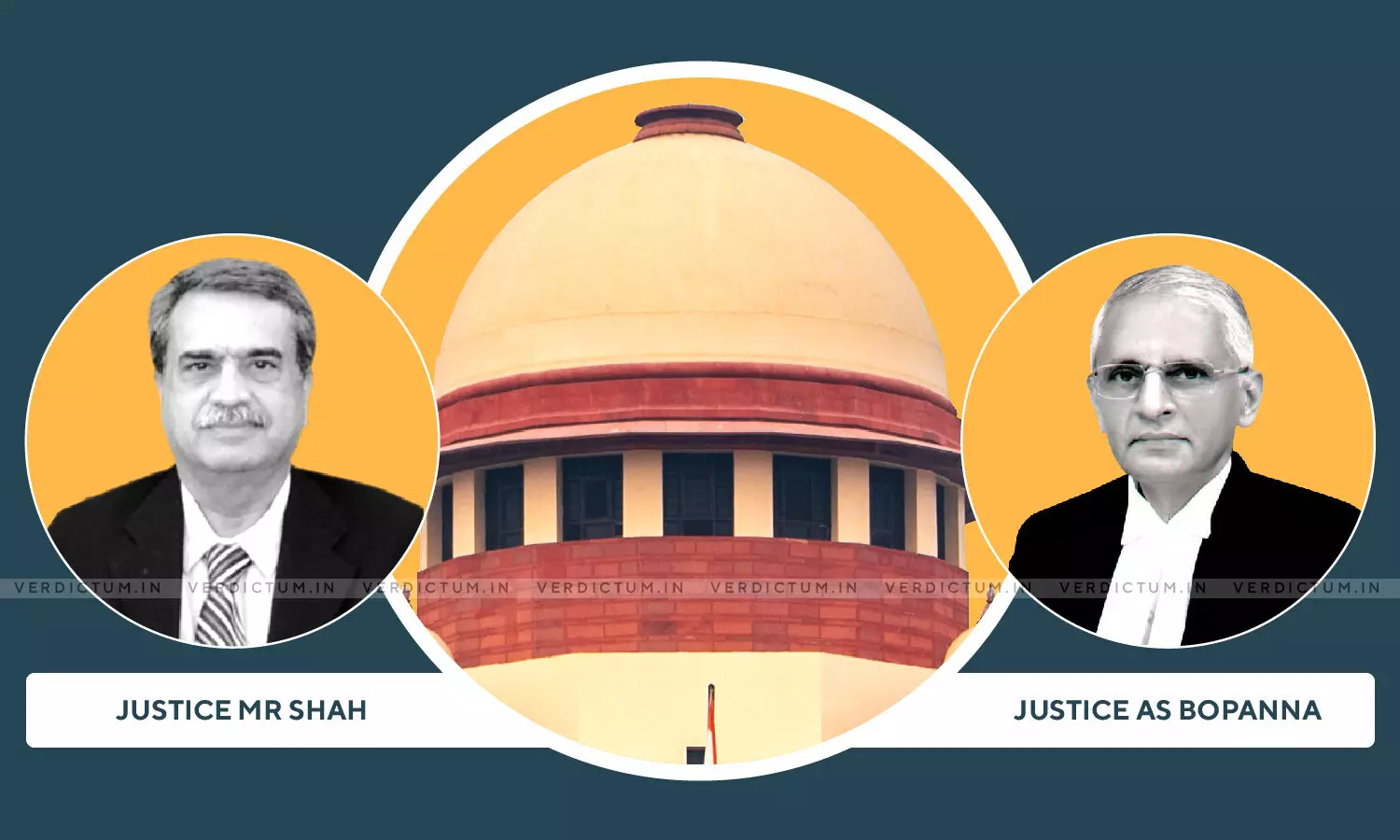
Intention To Be Ascertained From Weapon Used, Part Of Body Chosen For Assault: SC Upholds Conviction Under Section 307 IPC
 |
|A two-judge Bench of Justice MR Shah and Justice AS Bopanna while upholding the conviction of the accused under Section 307 read with Section 34 IPC has held that deadly weapons were used and the injuries were found to be grievous in nature. Also, they were caused on the vital parts of the body, hence the accused was rightly convicted under the said provision.
Also, the Court held, "Nobody can enter into the mind of the accused and his intention has to be ascertained from the weapon used, part of the body chosen for assault and the nature of the injury caused. Considering the case on hand on the aforesaid principles, when the deadly weapon – dagger has been used, there was a stab injury on the stomach and near the chest which can be said to be on the vital part of the body and the nature of injuries caused, it is rightly held that the appellants have committed the offence under Section 307 IPC."
An appeal was preferred against the judgment of the Jharkhand High Court which had upheld the conviction of the Appellants-Accused under Section 307 read with Section 34 of IPC.
The Court noted that all the Prosecution Witnesses were consistent in their statements and fully supported the case of the Prosecution. Also, the Prosecution was successful in proving the case against Appellant No. 2 who stabbed PW8 with a dagger on the right side of his stomach and on his left ribs, and also PW7 was stabbed by Appellant No. 1 with a dagger on his ribs.
PW7 and PW8 were the injured eyewitnesses. The Court made a reference to the case of State of M.P. vs. Mansingh where it was held that the evidence of an injured eye-witness has great evidentiary value and unless compelling reasons exist, their statements are not to be discarded lightly.
The Apex Court also noted, "There are concurrent findings recorded by the courts below holding the appellants – original accused guilty which do not require any interference by this Court in exercise of powers under Article 136 of the Constitution of India."
The Court also took into consideration the contention of the Appellant that at the most their case may fall under Section 323 IPC since it was a case of a single blow/injury. The Bench in this context held, "It is required to be noted that the injury of a single blow was on the vital part of the body i.e. stomach and near chest. Nature of the injury is a grievous injury caused by a sharp cutting weapon."
The Court further held that the nature of injuries was found to be grievously caused by a sharp cutting instrument.
"It is not the case of the accused that the offence occurred out of a sudden quarrel. It also does not appear that the blow was stuck in the heat of the moment," the Court observed.
Further, the Bench opined, "When the deadly weapon – dagger has been used, there was a stab injury on the stomach and near the chest which can be said to be on the vital part of the body and the nature of injuries caused, it is rightly held that the appellants have committed the offence under Section 307 IPC."
In the light of these observations, the Court dismissed the appeal and upheld the judgment of the High Court of convicting the Appellants-Accused under Section 307 read with Section 34 IPC.
Click here to read/download the Judgment